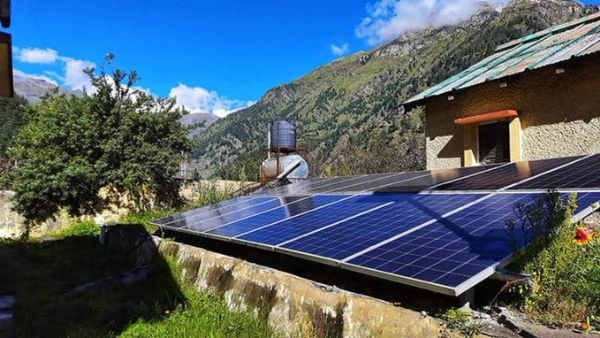Modi cabinet approves an additional ₹19,500 crores PLI for Solar panel manufacturing
Total Views |
New Delhi, Sept 22: The Cabinet approved an additional ₹19,500 crores of funding on Wednesday for the production-linked incentive (PLI) scheme for the manufacture of high-efficiency solar modules. The government expects this cash support to catalyze investment worth ₹94,000 crores in a sector that's highly dependent on imports, creating a domestic capacity of about 65 GW of fully and partially integrated solar photovoltaic modules.

The Cabinet also cleared the National Logistics Policy and approved changes to enhance the incentive structure for the manufacture of semiconductors, display fabs, and compound semiconductors.
The government has issued letters of award to Reliance New Energy Solar, Adani Infrastructure, and Shirdi Sai Group for the ₹4,500-crore first tranche of PLI on the National Programme on High-Efficiency Solar PV Modules. Renewable energy secretary Indu Shekhar Chaturvedi said the Cabinet-approved bid design will lead to a capacity of 29 GW of fully integrated manufacturing plants, 18 GW plants integrated from wafers to modules, and 18 GW integrated over cells and modules plants. There are four stages in module making - polysilicon, wafers, cells, and modules. India's existing 15 GW production facilities have no polysilicon or wafer production capacity. The PLI encourages all the stages - allocating Rs 12,000 crore for fully integrated polysilicon to wafers to cells to modules capacity, Rs 4,500 crore for three-stage integration of wafers to cells to modules, and Rs 3,000 crore for integration across cells and modules. The combined module manufacturing capacity under both PLI tranches is expected to be 74 GW, in addition to 6 GW outside PLI schemes. The government said that the incentive scheme is expected to create direct employment for 195,000 persons and for 780,000 indirectly, apart from replacing Rs 1.37 lakh crore of imports.
PLI will be disbursed for five years after the commissioning of solar photovoltaic (PV) manufacturing plants on sales of high-efficiency solar PV modules. Chaturvedi said the government had taken a number of measures, including introducing customs duty, to encourage domestic module manufacturing and there are signs that this is picking up, he said. The country will need 280-300 GW of solar energy capacity to achieve the targeted 500 GW of renewable energy generation by 2030. "For the remaining years up to 2030, our domestic requirement will be 30-35 GW of modules," Chaturvedi said, adding the commissioned capacity will meet domestic as well export requirements.
Tata Power managing director Praveer Sinha welcomed the move, saying this will help in import substitution and indigenization of solar equipment. Effective April 2, the government imposed a 25% customs duty on solar cells to promote domestic manufacturing under the Aatmanirbhar Bharat initiative